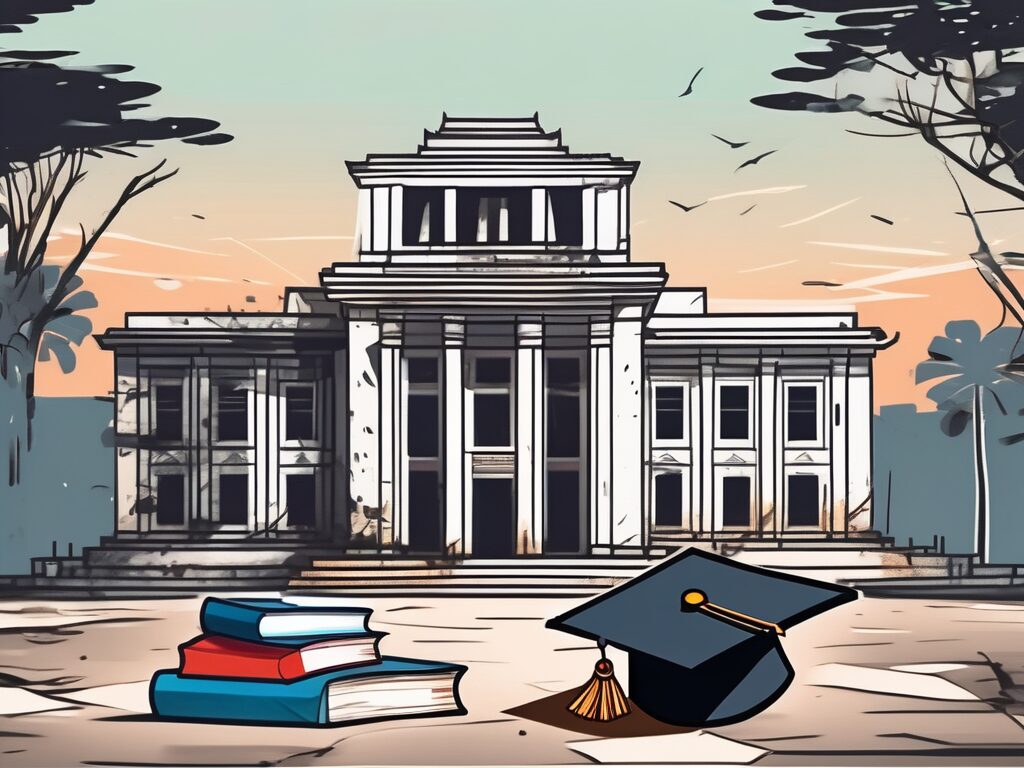Top 5 Higher Education Challenges in Cambodia for 2025
Cambodia, a nation rich in cultural heritage and marked by a complex historical backdrop, has made notable advancements in various sectors over recent decades. However, the higher education system remains beset by significant challenges that hinder its development. This guide aims to elucidate the primary issues confronting higher education in Cambodia and propose actionable solutions, thereby serving as a resource for education consultants advising international teachers.
1. Outdated Curriculum
The curriculum across numerous higher education institutions in Cambodia is frequently criticized for its lack of alignment with contemporary job market requirements. Predominantly reliant on rote memorization, many programs fail to cultivate essential skills such as critical thinking and problem-solving. This disconnect renders graduates ill-prepared for the demands of the modern workforce.
Moreover, the curriculum often lacks contextual relevance, relying heavily on imported textbooks and materials that do not adequately reflect the socio-economic realities of Cambodia. This misalignment can lead to a disconnection between educational outcomes and the needs of local industries.
Potential Solutions
- Revise the curriculum to incorporate practical, project-based learning that reflects local contexts.
- Engage industry professionals in the curriculum development process to ensure alignment with employer expectations.
2. Insufficient Resources
A critical challenge facing higher education in Cambodia is the lack of adequate resources. Many institutions are deficient in essential facilities, including libraries, laboratories, and technological infrastructure, which are vital for delivering quality education. This scarcity severely limits the educational experience and outcomes for students.
Additionally, there exists a notable shortage of qualified educators, exacerbated by low remuneration and limited professional development opportunities. This situation contributes to high turnover rates and a lack of continuity in teaching quality.
Potential Solutions
- Increase funding for higher education institutions to enhance facilities and provide competitive salaries for educators.
- Implement comprehensive teacher training and professional development programs to attract and retain qualified staff.
3. Limited Access to Higher Education
Access to higher education remains a significant barrier for many students in Cambodia, particularly those from rural or economically disadvantaged backgrounds. Financial constraints, coupled with a lack of information about available opportunities, create an inequitable educational landscape.
Potential Solutions
- Establish scholarship programs and financial aid initiatives to support students from underprivileged backgrounds.
- Enhance outreach efforts to disseminate information regarding higher education opportunities, ensuring that all students are informed and able to apply.
4. Quality of Teaching
The quality of teaching in Cambodian higher education institutions is often inconsistent, influenced by factors such as inadequate training and limited resources. This inconsistency can lead to varied educational experiences for students, undermining the overall effectiveness of the system.
Potential Solutions
- Standardize teacher training programs to ensure a consistent quality of education across institutions.
- Encourage collaboration between institutions to share best practices and resources, fostering a culture of continuous improvement.
5. Global Accreditation and Recognition
Many Cambodian higher education institutions struggle with achieving global accreditation, which can affect the recognition of their degrees internationally. This lack of accreditation can deter prospective students and limit graduates’ opportunities in the global job market.
Potential Solutions
- Prioritize the pursuit of international accreditation for programs, enhancing their credibility and appeal.
- Foster partnerships with accredited institutions abroad to facilitate knowledge exchange and improve educational standards.
In conclusion, while the challenges facing higher education in Cambodia are substantial, they are not insurmountable. By implementing targeted strategies and investing in key areas, it is possible to cultivate a higher education system that is relevant, well-resourced, and accessible to all. Education consultants play a crucial role in guiding international teachers through this evolving landscape, ensuring that they are equipped to contribute positively to the educational environment in Cambodia.
Empower Your Teaching Career with IPGCE
As Cambodia navigates the complexities of its higher education system, educators have a unique opportunity to drive transformative change. The International Postgraduate Certificate in Education (IPGCE) is designed to enhance your qualifications, broaden your career prospects, and connect you with a global network of professionals. By enrolling in the UK’s leading teacher training course, you can contribute to a future where quality education is accessible to all. Seize the opportunity to elevate your professional development and adapt to the global education landscape. Join the UK’s #1 Teacher Training Course today and take a significant step towards fostering an inclusive and effective higher education system in Cambodia.

